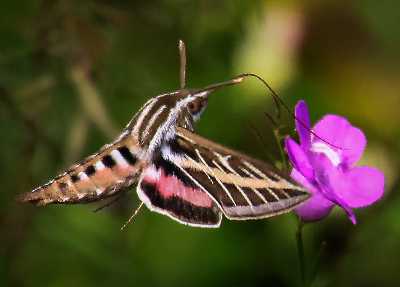anon_zapi said in #3460 8mo ago:

>are there other grounds except aesthetic to prefer the higher type of life ? Why should we care if it is mere life that proliferates, yeast life ... or the nobler[?] ... Does Nature favour the nobler on a long enough time scale ?
Empirically, literal yeast life wins the contest of sheer biomass. The untouchable prokaryotic bacterial masses that recycle the world's biological waste out-masses everything else. On that theme we're also soundly beaten by hive insects like ants and such. I imagine within the human world it will always be the same as well.
Anon suggested athletic power density as a measure of higher life the other day. There the hummingbird and sphinx moth beat everyone else with extreme power densities of up to 500 watts per kilogram. If this was the apex of life, you could do worse. For reference, a jet turbine is more like 5000 watts per kilogram, also an impressive artifact of higher life.
Trophic hierarchy as a proxy for raw dominance power is another measure, topped out by humans, lions, wolves, orcas, and generally the high-intelligence high-violence somewhat social mammal super-predators. The rest of those are now under the explicit protection of humans as monuments of natural nobility, so (at least some) humans definitely top the list. But man is himself a highly flexible multitude with the majority being the spiritual equivalent of mere biomass and parasitic flatworms, with the wolf-spirits in the minority.
There is much fear from futurists and philosophers that the lower biomass will somehow overpower and permanently curtail the higher, whether in the form of grey goo or dalit democracy. How founded is this? What is nature's answer to the threat of mere biomass?
God in his infinite wisdom seems to have decreed that there shall be no globally dominant equilibrium solutions to the problem of life. Whenever a uniform bacterial mat efficiently flattens the trophic hierarchy down to a single dominant form that would "tile the universe" with itself, along comes some predatory super-being to tunnel through this mat and eat its juicy flesh, or farm its productive capacity as the tax base of a higher form. Universality creates opportunity for predation. The normie is the perfect victim-cattle.
But once the predator is firmly established, the prey, parasites, scavengers, and internal competition all innovate to cut into its margins. So there is a collapse back to the more desperate malthusian equilibrium. This is familiar in late-stage civilization: the dominant civilization-building higher man is overcome by his democratic waste products, less creative imitators, cancers of social organization, and innovations in resentment. But at each stage this process is powered by some kind of innovation, some of which accumulates, so on a long enough timescale this circle of life spirals outward into ever higher forms. Zoomed out on the hundred thousand or hundred million year timescale, the upward trajectory is clear.
Where does it go? Are we spiralling inward to some convergent super-being, or outward into a super-ecosystem of ever more diverse forms? Probably both somehow. There's value in pushing this forward, but which direction is forward is systematically obscured and discoverable only by exploration. And the forward direction is usually either some form of heretical defection on the existing order, or pushing to new heights in the established contest. Either way, no easy silver bullet. Life is a confused struggle.
I don't believe there is any fixed natural archetype or metric of higher life. At best we can make a bet on some particular niche that appeals to us. But the original sin of Nietzschean-style philosophy is that its aesthetic intuition is guided by nostalgia for a niche that no longer exists. Homeric man is dead. Even modern man is dead or dying. The problem of higher life isn't just "how" or "why" it's actually "what". Still we must take our leap of faith.
referenced by: >>3564
Empirically, literal